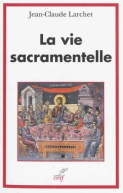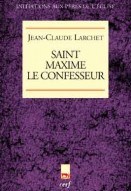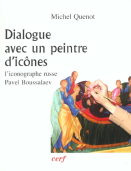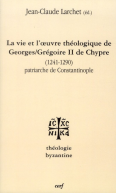Théologie du corps
Collection Théologies
112 pages - oct. 2009
16,00€
S'opposant à une conception encore très répandue, ce livre, qui se fonde surtout sur l'anthropologie des Pères grecs, montre que le christianisme, loin de dévaloriser et de mépriser le corps, l'a au contraire valorisé plus que toute autre religion. Cette valorisation va d'une conception de la création où le corps est considéré comme porteur, lui aussi, de l'image de Dieu, jusqu'à une représentation de la vie future à laquelle le corps est appelé à participer, en passant par une conception de la personne humaine comme composée indissociablement d'une âme et d'un corps. Cette valeur exceptionnelle reconnue au corps est sans aucun doute liée à ce qui constitue le fondement même du christianisme, à savoir l'Incarnation, c'est-à-dire le fait que le Fils de Dieu est devenu homme en assumant non seulement une âme humaine, mais encore un corps humain, et qu'Il a donné à l'homme de pouvoir être sauvé et déifié dans tout son être, âme et corps. Après avoir étudié le corps successivement dans son état de perfection originelle, dans son état de déchéance, et dans sa restauration par le Christ, ce livre souligne particulièrement sa place et son rôle dans la vie spirituelle, et montre comment il peut être transfiguré et divinisé par l'action conjuguée de l'ascèse bien comprise et de la grâce, avant d'évoquer son destin final dans la résurrection et la participation éternelle à la vie divine. Dans notre monde qui a perdu le sens de la véritable valeur du corps, soit en lui vouant un culte idolâtrique, soit en en faisant un objet mercantile ou un instrument de jouissance, l'apport de ce livre, écrit dans un style accessible à tous, est particulièrement salutaire.
--
In order to make a stand against a widely held belief, the author draws principally from the anthropology of the Greek fathers. He shows that Christianity, far from depreciating and despising the body, has on the contrary set more value on the body than any other religion. This valorisation spans from the concept of the creation - where the body is considered also as representing the image of God - to a representation of future life in which the body will participate, taking in the concept of the human being as indissolubly composed of a soul and a body. The exceptional value conferred on the body is undoubtedly linked to what constitutes the very keystone of Christianity: that is to say, the Incarnation. The fact that the Son of God became a man by assuming not only a human soul, but also a human body; and that He gave man the power to be saved and deified in all his being, soul and body. After studying the body firstly in its original perfection, then in a state of lapse, and finally in its restoration by Christ, the author stresses its place and role in spiritual life and shows how it may be transfigured and made divine by the combined action of asceticism – properly understood - and grace. He goes on to evoke its ultimate destiny in resurrection and its eternal participation in divine life. In a world that has lost all awareness of the body’s true value, either by turning it into an object of cult adoration, a piece of commercial goods or an instrument of pleasure, this widely accessible book is particularly beneficial.
- Dimensions : 145x235
- ISBN : 9782204090025
- Poids : 190 grammes
DU MÊME AUTEUR
Divinisation de l'homme selon saint Maxime le Confesseur (La) - CF 194
de Jean-Claude Larchet
768 pages - mars 1996
> VOIR TOUS LES LIVRES DE l'AUTEUR
DANS LA CATÉGORIE INTRODUCTION AUX CHRISTIANISMES
Dialogue avec un peintre d'icônes
L'iconographe russe Pavel Boussalaev
de Michel Quenot
200 pages - févr. 2002
Tradition grecque de la Dormition et de l'Assomption de Marie (La)
256 pages - avril 2003











